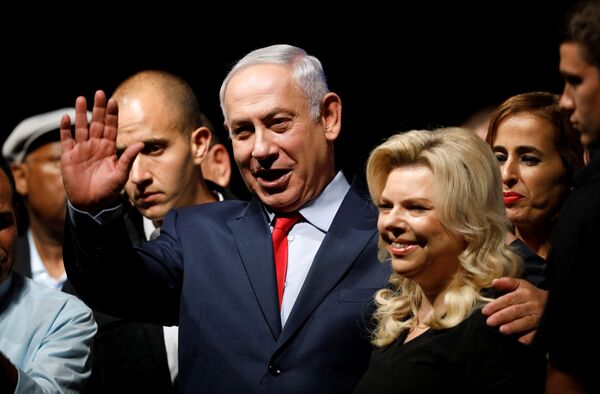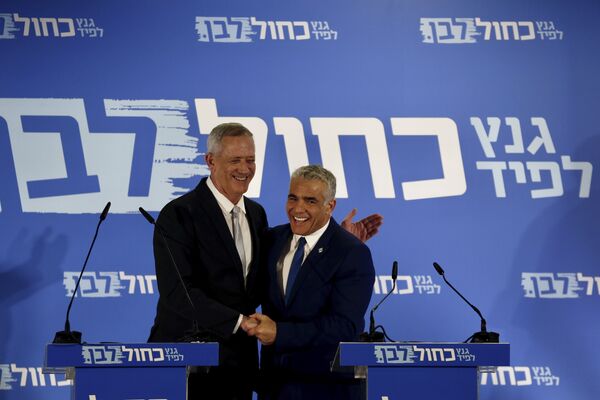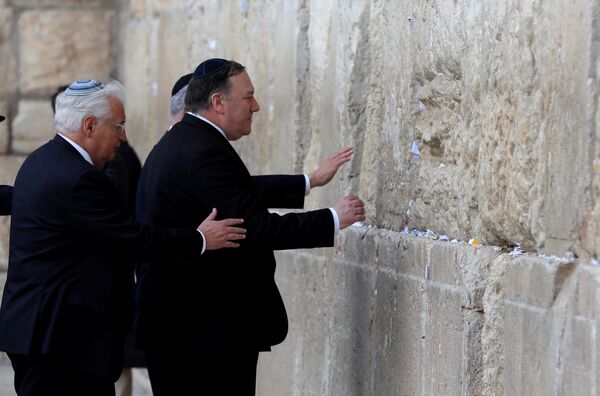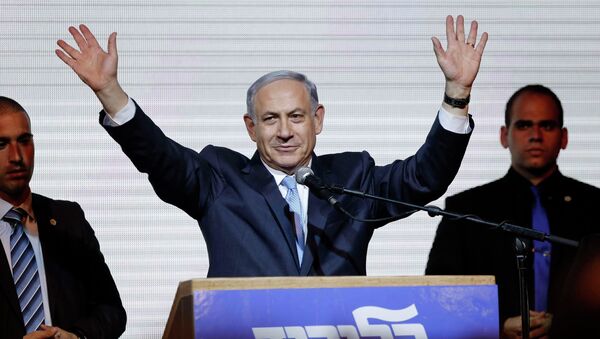Hopefully, this guide will shed some light on who's running, and where they stand on key issues.
Likud
The ruling Likud as founded in 1973, and was initally a joint list comprised of Herut, the Liberal party, the Free Center, the State List, and the Labor Movement for a Greater Israel.
In 1988, the parties merged into one under the Likud banner. A right-wing party, its former leaders include Menachem Begin, Yitzchak Shamir, Ariel Sharon and — of course — Benjamin Netanyahu, the current Prime Minister.
Likud has long-supported the idea of an extended ‘Land of Israel', although what this concept would entail in practical form isn't clear.
For most of its existence, Likud has opposed Palestinian statehood and its leaders have frequently been regarded as the most hawkish on defence. However, this stance has softened, if only superficially, with Likud continuing the implementation of the Oslo accords and unilaterally disengaging from the Gaza Strip in 2005.
While its policies have often marked it out as the ‘hard man' of Israeli politics, on religious issues Likud has consistently walked a secular line — although Israel's religious parties are much more comfortable in coalition with Likud than any others.

Israel's biggest and newest political grouping represents perhaps the biggest threat Netanyahu has ever faced since becoming Prime Minister again in 2009.
Named after the colours of the Israeli flag, the coalition is led by former Israeli Defence Force Chief of General Staff Benny Gantz, and has pushed ahead of Likud in some polls. Regarded as principled and patriotic, he's a newcomer to politics, although to boost his electoral credentials Blue & White has brought together many former lawmakers and ministers.
The central tenets of the party's platform include introducing prime ministerial term limits, barring indicted politicians from serving in the Knesset, amending the nation-state law to include Israeli minorities, limiting the power of the Chief Rabbinate of Israel over marriages, investing in early education, expanding health care, and re-entering negotiations with the Palestinian Authority for a peace agreement.

Labor is the successor of the Mapai party, and as such historically has (or, perhaps, had) a moderate Zionist-socialist ideology — formed in 1968 from a merger of Mapai, Achdut HaAvoda, and Rafi, it's switched back and forth from running independently to as part of a list over the years.
Just as its UK counterpart is intimately connected with the country's trade unions, Labor was closely tied with Israel's General Federation of Labor (Histadrut), but in the mid-1990s its economic policies becoming less radical and more in line with European social democracy.
The party stands on the left of the Israeli-Palestinian conflict, and was the first major party to call for negotiations with the Palestine Liberation Organisation and support the establishment of a Palestinian state.
Upon Israel's foundation, Labor dominated politics, leading various configurations of governments for almost 30-years — five Israeli Prime Minister have hailed from the party in total. However, its fortunes have waned significantly ever since — in 2009, it gained a record low of 13 seats.
Kulanu (All of Us)
Founded by former Likud minister Moshe Kahlon in November 2014, the party's security policies are stern, but otherwise its manifesto is socially centrist and economically redistributive — concerned with the cost of living, local and national corruption, and reducing socioeconomic inequality. Issues such as religion barely register.
Hadash-Ta'al
A joint electoral list of two Arab parties — Hadash and Ta'al. The pair were part of the four-strong Joint List alliance which competed in the 2015 elections, which disbanded at the start of 2019. Just before the deadline for submitting the lists, Hadash (led by Ayman Odeh) and Ta'al (led by Ahmad Tibi) agreed to run together. ·
Hadash has run in every Knesset election since 1977 — it began life as a merger between Rakah and other movements such as the Black Panthers (a protest group comprised of second-generation Jewish immigrants from North Africa and Middle Eastern countries).
At least at first, Hadash had a communist streak, and was perhaps the first Israeli party to stand on a platform of a ‘two-state solution' to the Israeli-Palestinian conflict. Today, the party still advocates the return all of territories currently occupied by Israel, including the Golan Heights.
Ta'al (Arab Movement for Renewal) was established prior to the 1996 elections, but failed to breach the representation threshold — it would take joining forces with a number of different parties — Balad in 1999, then Hadash in 2003, and Ra'am in 2006, 2009, and 2013 — to gain parliamentary seats.
A secular party, Ta'al supports an independent Palestinian state and a solution to the issue of Palestinian refugees.
Shas
An acronym for Shomrei Sefarad (Sephardic guardians), Shas was established in 1984 by ultra-Orthodox Sephardic Jews in response to their perceived institutional disadvantage and under-representation in Israeli politics.
It stands on a platform of restoring the prestige of the Sephardic community, the promotion of Israel as a Jewish state and increased immigration of international Jews to the country, while also peaceful coexistence with Israel's Arab neighbours.

Perhaps unsurprisingly, the clue to the party's primary policy concern is in its title — established by Avigdor Liberman prior to the 1999 Knesset elections, it sought to increase Jewish immigration from the former Soviet Union, and represent the interests of ex-USSR residents already resettled in the country.
Yisrael Beitenu's platform is a diverse mix of hawkish foreign and security policies, extremely liberal economic stances, and support for a Palestinian state.
United Torah Judaism (Yahadut HaTorah)
A union comprised of ultra-Orthodox Jewish parties Agudat Israe land Degel HaTorah — they've run together since 1992. The grouping promotes the interests of Israel's Haredi community, and is determined to increase and preserve the religious character of the State of Israel. Such is their orthodoxy, in September 1999 United Torah Judaism left the ruling coalition government in protest over the shipment of a turbine to the Ashkelon power station on the Jewish Sabbath.
Nonetheless, the party is fairly dovish on defence and security issues, favouring diplomacy rather than military action, and de-escalation of Israel's ongoing conflicts. For instance, UTJ was part of the government which disengaged Israeli forces from the Gaza Strip.
Ra'am-Balad
A joint electoral list of two parties (Ra'am and Balad), like Hadash-Ta'al the pair were part of the four-strong alliance of The Joint List which competed in the 2015 elections. As with their former stablemates, the two agreed to run together just before the deadline for nominations — otherwise, neither may have passed the electoral threshold (although whether they will in tandem is also uncertain).
Zehut (Indentity)
Established in 2015 by former Likud MP Moshe Feiglin after he failed to win a seat — Zehut stands on a platform of preserving Jewish identity, personal liberty, and the creation of a Greater Israel (despite favouring separation of state and religion).

Magen (Shield)
Established in the run-up to the 2019 elections by Gal Hirsch, the Israeli brigadier general who commanded the 91st Division of the Israel Defence Forces during the 2006 Lebanon War. Hirsch places the security of Israel above all, and says if elected his group will "bring morality back to Israel".
Union of Right-Wing Parties
A joint electoral list formed before the election by Jewish Home, National Union and Otzma Yehudit. The former pair have cooperated in several elections — before the 2019 vote, they was pressured to bring the latter into the fold, to give the party a greater chance of representation.
Gesher
Established in 1995 after the resignation Likud heavyweight David Levy, the party made much of its commitment to social justice and peace. The party would subsequently serve in coalition with Likud, until 1998 when Levy left the party and joined Labour. The party was dissolved in 2003 — but Levy's daughter, Orly Levy-Abekasis, re-established Gesher to compete in the 2019 election.
Meretz
Founded in the run-up to the 1992 election as a joint list of parties Mapam, Ratz and Shinui, before becoming one party in 1997.
While a zionist party, Meretz is left-leaning, supporting social equality and the separation of church and state, granting Israeli Arabs equal rights, and a two-state solution. It also opposes settlement expansion. working toward peace by giving up the occupied territories and putting an end to the settlement enterprise.
Established in the run-up to the election by former Jewish Home MPs Naftali Bennett and Ayelet Shaked. A dedicated Zionist party, it rejects the creation of a Palestinian State, and free market economy.





